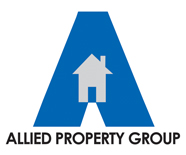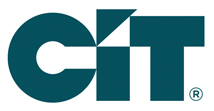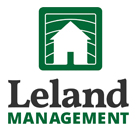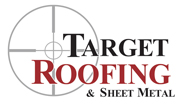
A Warm Welcome to the Board
Published February 2021
Editor’s Note: The following advice is provided with the goal of assisting board members in carrying out their many responsibilities. While it can’t cover every situation, there is much useful information provided by various industry experts.
 Let’s Talk about Your Preventive Maintenance Schedule
Let’s Talk about Your Preventive Maintenance Schedule
By Ana Sanchez Rivero
Congratulations on being elected to the board. We appreciate the time and energy you’ll devote in the coming year. We wanted to take a moment to talk about your preventive maintenance schedule. Now, I know you’re thinking that there must be more interesting things to discuss, but did you know reactive maintenance costs, on average, three to nine times more? Just imagine the cost savings for your community if you develop a plan to stay on top of preventive maintenance!
Where do you start? Here’s a brief plan:
- Collect all your community’s maintenance-related information and organize it.
- Identify items which are cost effective for preventive maintenance.
- Establish and maintain a schedule.
- Communicate and plan maintenance in an acceptable timeframe.
These simple steps can help your association succeed. They can provide cost savings, prevent stressful reactive situations, and, most importantly, put your community ahead of the game. Best of luck!
For more information about Allied Property Group, call (305) 232-1579 or visit www.alliedpropertygroup.net.
 Don’t Shortchange Your Parking Lots and Roadways
Don’t Shortchange Your Parking Lots and Roadways
By Connie Lorenz
Welcome to the board, and I hope you are ready for it! We all know how 2020 turned out, and as a business owner, I can tell you that work slowed down drastically for us as we all figured out our new normal.
We understand everyone being careful with how they are spending their money, but make sure not to shortchange your parking lots and roadways! A small pothole today could turn into something much bigger and more costly to repair if it is left open and allows water intrusion! The difference between preventive maintenance and crisis management is all in the dollars. Investing in an asphalt maintenance program that helps extend the life of your pavement and keeps everyone safe is by far the best investment of your maintenance dollars. Call us today for your free asphalt evaluation. No matter where the road takes you, Asphalt Restoration Technology Systems will be there.
To learn more about Asphalt Restoration Technology Systems, call (800) 254-4732 or visit www.asphaltnews.com.
 A Board’s Responsibilities
A Board’s Responsibilities
By Ken Direktor
Familiarize yourselves with the condition of the property. Determine what maintenance and repair projects are in process and make sure they are properly supervised. Determine what maintenance and repair projects are planned for the next few years.
Gain an understanding of the fiscal operation. Review the current and prior budgets and financial statements. Make sure the budget is sufficient to cover operating expenses. Evaluate the need for reserves based upon the funds on hand and the upcoming projects that should be funded from reserves.
Understand that process matters. This is a legal issue, a public relations issue with your members, and an operational efficiency issue. Make sure meetings are properly noticed and conducted according to the law and your governing documents. Understand what technology is available to streamline notice to your owners, unit owner voting, and attendance at membership meetings.
Finally, understand that there will always be people who support the board, people who never participate, and people who disagree with the board. You took a seat on the board to represent the interests of the entire community and to exercise your judgment to fulfill the board’s obligations.
For more information about Becker, visit beckerlawyers.com.
 Step Right Up to the Board
Step Right Up to the Board
By Ashley Dietz-Gray
Community association boards are quite different in form and function than corporate boards, school boards, etc. Why?
- Your community board is a political organization.
- It’s run by unpaid volunteers.
- The shareholders are all highly invested.
- The shareholders will almost NEVER agree on a common set of goals and objectives.
- You can’t go home and leave it behind because your job is your home!
No matter how successful you may have been in another career, you can never be fully prepared for your experience on a community association board.
Board members are responsible for the administration of the association. The association is responsible for the maintenance, management, and operation of the association property.
Some of the duties of board members include, but are not limited to, the following:
- Establishing an annual budget
- Conducting legal elections
- Overseeing the maintenance of the common elements
- Managing the finances
- Participating in board meetings
- Enforcing the rules and regulations
- Working with others to achieve the goals of the association.
Being on the board is a thankless job, but someone must do it! Thank you for stepping up! Hopefully, your neighbors will recognize that you are investing your time and energy for the benefit of your community.
For more information about Campbell Property Management, call (954) 427-8770 or visit www.CampbellMGT.com.
 Make the Complex Simple with a Well-managed Reserve Account
Make the Complex Simple with a Well-managed Reserve Account
By Erin Sweeney
Whether your association needs funds fast or a long-term financial plan, putting funds in a reserve account is a safe way to get a return on your investment while retaining maximum liquidity.
Here are requirements every board of directors should have when looking at financial products.
Security
Governing documents or a financial policy may require an FDIC-insured, other government-backed, or other insured product with no risk to the principal investment.
Liquidity
While most community associations make long-term plans for larger investments, emergencies can happen—you need to be able to easily access funds.
Return
A competitive rate of return that securely grows your reserves provides your association with the funds necessary to maintain and enhance your community.
Efficiency
Find a banking partner that can deliver the best products and solutions to efficiently and effectively meet your needs.
To learn more about CIT Bank, visit cit.com/CABReserves.
 Routine Roof Inspections and Maintenance
Routine Roof Inspections and Maintenance
By Michelle Grojean
Keeping a close eye on your roofing system is imperative for both residential and commercial buildings. Interior inspections are relatively easy, but it’s not so easy to spot rooftop issues. A certified and trustworthy roofing contractor is best suited for this detailed report. With regular inspections and routine maintenance, you can wind up saving—big time! Overall, roof inspections can be one of your best, and most rewarding, investments.
For all types of roofing systems, not only is an annual roof inspection recommended but also a thorough maintenance program should be implemented as well. Thorough roof inspections can help to identify your roof’s problem areas, catching costly leaks before they happen. Professionals can pinpoint the exact needs of your roof and help determine the most effective plan of action to help to correct any problems.
For more information, call today for your free inspection at (855) CROWN-55 or (239) 994-9529 or email michelleg@crownroofing.com.
 How Do We Future– Proof Your Community for Years to Come?
How Do We Future– Proof Your Community for Years to Come?
By Nicole Coro
The world as we’ve known it has changed considerably in a few short months. As the need for remote workers increases, reliable internet has become a necessity, and it is ever more important to future-proof your property’s communications infrastructure for years to come for both residents and the community. DIRECT PLUS plans, designs, and builds fiber infrastructures that are guaranteed to grow with the industry. With speeds up to a gigabit and scalable to 10 gigs, fiber optics will change the way your residents communicate, work, and game without interruption!
Gigabit speeds are provided through various mediums from different providers, and while these are the fastest speeds available by today’s standards, it will probably seem like a slow, low-end speed in 15 to 20 years. However, even if internet speeds move on to terabit speeds in the future, fiber optics allow data transmission rates to scale exponentially. Fiber optics are so future proof that it will outlast the electronics that currently use the system as internet speeds increase.
For more information about Direct Plus, call (305) 406-1880 or visit www.directplusnow.com.
 Fundamentals of First Impressions: What Your Community Says to Potential Residents
Fundamentals of First Impressions: What Your Community Says to Potential Residents
By Down To Earth Landscape & Irrigation
Since 1970, there have been an average of 10,000 new community associations each year! With so many available to prospective residents, it is critical to ensure yours is unforgettable.
Since your community’s entrance sign is the first impression of your property, here are tips for making it and your community stand out.
- Consider placing your entrance sign at the farthest end of your property to show off your space.
- Use the same materials as the other structures in your community to maintain a consistent style.
- Find a happy medium for your sign that reflects and advertises your community’s personality.
- Keep your entrance sign well maintained to showcase your community.
- Prioritize safety and security.
- Create natural paths with foliage and hedges based on your landscaper’s observation of how your residents navigate the community and common areas.
Displaying your value as a community, as well as creating a unique sense of space, is what allows prospective residents to make the transition from buyer to new community member.
For more information on Down To Earth Landscape & Irrigation, call (352) 571-0361 or visit www.dtelandscape.com.
 Roof Damage—Early Detection Is Key
Roof Damage—Early Detection Is Key
By Ed Williams
As a new board member, you will be faced with a lot of decisions right away. Hopefully, this brief article will give you enough information that you can ask questions to learn more. One of the largest expenses most condominiums face is roof replacement. So, obviously it is best if this particular asset can be made to last as long as possible. Has your association carried out an annual inspection of the roof? These inspections can provide a lot of information to the board, such as the condition and the life expectancy of the current roof. This information can then be correlated to the adequacy of the reserves. Reserves for large expenditures can prevent emergency assessments, which nobody likes. Think of roof damage like a cancer. Left untreated, it will spread. Early detection is key to long term success.
To learn more about Ed Williams Registered Roof Consultant, visit EdWilliamsRegisteredRoofConsultant.com or call (772) 335-5832.
 Review Security Protocols and Communicate the Process in Place
Review Security Protocols and Communicate the Process in Place
By Brie Shouppe
Whether you are returning to a board or you’re a new member this year, it’s important to know and understand your association’s security protocols. With any method or system, there are associated “rules” or processes. It is good practice to review these at least once a year to update new members and ensure that the entire board agrees.
If changes need to be made to your community’s security processes, do not forget to communicate this to your security provider. In most scenarios, a vendor is expected to enforce the rules of the association, requiring further direction from those board members.
It is also beneficial to update the residents or provide an annual reminder of the security measures and rules. This transparency and communication helps prevent confusion and assists with smooth verification at gates, compliance with an amenity’s hours, and observation of other protocols that the board has issued for everyone’s safety.
For more information on Envera Systems, call (855) 380-1274 or visit www.EnveraSystems.com.
 Contending with Wildlife Encroachment Issues
Contending with Wildlife Encroachment Issues
By John Greenwood
Welcome to the board, and thanks in advance for all of the hard work you will do for your community over the coming year. In addition to seeing to and carrying out the usual budgetary, legal, community, and general maintenance issues all communities have, you may also have to contend with some wildlife encroachment issues. This is because we live in the beautiful state of Florida—multiple different species of wildlife here are protected by the state, and many are federally protected. At Friends of Bats, we are singularly focused on ensuring that when bat colonies (which are protected) decide to take up residence in our houses, condominiums, and apartment buildings, we can provide a safe and humane exclusion service that not only rids the building of the problem without harming the bats but also allows us to offer a guarantee against their return. Call us if you need our help!
For more information about Friends of Bats call 1-888-758-BATS (2287), email john@friendsofbats.com, or visit www.friendsofbats.com.
 Flexibility is Key for New and Returning Board Members
Flexibility is Key for New and Returning Board Members
By Tim O’Keefe
Community board members were certainly put to the test in 2020. Among the many lessons learned during a year of challenges were the importance of being flexible and open to pivoting from what might have been considered a best practice in the past. Last year opened our eyes to better use of technology. Many properties are now holding board meetings on Zoom, and elections are increasingly using electronic voting. Community civility should remain paramount, as rules and regulations need to be more strictly enforced.
Following are some recent considerations for newly elected and returning board members to keep top of mind:
- Rethink disaster planning and preparation beyond natural disasters to account for public health crises. Make sure your community is well stocked with personal protective equipment, sanitizer, and disinfecting products.
- Take a fresh look at your community’s finances, as the pandemic might have caused an increase in delinquencies or might necessitate measures such as obtaining a line of credit.
- Evaluate the technology in place for virtual board meetings, communication with residents, and elections.
Be active, engaged, and nimble for the benefit of your fellow residents.
For more information on KW Property Management & Consulting, contact Tim O’Keefe at (786) 910-4226 or tokeefe@kwpmc.com, or visit www.kwpmc.com.
 Heavy Rainfall Causes Damage that Can Be Easily Overlooked
Heavy Rainfall Causes Damage that Can Be Easily Overlooked
By Dustin Anderson
Torrential rains during the summer and the fall have likely caused significant damage along shorelines in your community and possibly under the water, resulting in situations that are often overlooked. These types of problems usually start small and end up causing a significant amount of damage.
For example, stormwater structures could be clogged with debris, sediment, and algae, rendering the stormwater systems ineffective to prevent severe flooding. These are some signs that the drainage systems aren’t working properly:
- Flood waters may be standing on the streets after heavy rainfall.
- Water levels are higher than usual for a longer period of time in lakes, ponds, or canals.
- Holes or depressions are forming near pond banks or stormwater structures.
Other possible problems/solutions:
- Identify non-native plants, requiring removal in favor of native plants that provide important nutrients for fish and other wildlife.
- If water flow seems limited, consider dredging the lake/pond bottoms. Stagnant water can be improved by installing aeration and aerating fountains.
- Shorelines may have eroded, resulting in injuries to residents and those operating heavy equipment. ShoreSOX® and DredgeSOX® are the most cost-effective and long-lasting systems to restore shorelines.
Find out more about Lake & Wetland Management online at www.lakeandwetland.com.
 Enforcing Rules and Regulations
Enforcing Rules and Regulations
By Kevin M. Carroll
Boards are constantly faced with enforcing rules and regulations. This can be an intimidating challenge especially during a global pandemic. Some rules can be impossible to enforce. Homeowners may often challenge enforcement by citing “selective enforcement.” Boards need to ensure that rules are enforced uniformly throughout the community. Ensuring that a board follows “uniform enforcement,” the prevention of selective enforcement can be achieved when there is an organized system and a standard procedure in place. Communication, consistency, and detailed recordkeeping is crucial. The process can be time consuming and exhaustive, but it is well worth it if it keeps the peace, provides consistency, and permits the enforceability of rules and regulations within the community. As always, be sure to reach out to your property manager or your legal counsel for support in this matter.
For more information, call (561) 750-8800, email kmc@langmanagement.com, or visit www.langmgmt.com.
 Show Some Appreciation
Show Some Appreciation
By Mariann Gerwig, CGC, HI, CFCAM
To ensure that your current volunteers remain and new ones join, make sure you show your appreciation for those who help. Some examples include recognizing their contributions on social media and in the community newsletter or even bringing a sweet treat to the next meeting. Overall, the lives of homeowners are busy and offer limited free time. In order to entice homeowners into sacrificing that time, you need to make their contribution worthwhile. Avoid criticizing their work too harshly, and always thank them for their effort and provide effective feedback if necessary. Volunteers are key to a successful community, and they should be treated as such.
For more information about Promar Building Services, email Mgerwig@Promarbuilding.com, visit promarbuilding.com, or call (561) 598-4549.
 Creation of a Successful Board
Creation of a Successful Board
By Rebecca Furlow
The main factor in creating a successful board of directors is having people on the board who are there to serve in the association’s best interest.
It is important that members of the preceding board that will be stepping down host workshops to bring the new directors up to speed. For the most successful board transitions I have witnessed, a board of directors’ manual was created. It includes a current copy of the association documents, explanation of each director’s role, and summary pages explaining different topics: steps to take before starting new projects, reviews of management company procedures, social media sites, different committees (and members) and what those committees do, vendors used by the association, etc. Last but certainly not least, review current financials, owners’ dues accounts, reserve accounts, and insurance coverages.
If the board invests time during the first month of their appointment, they will be prepared for the rest of their term and will be successful.
For more information on Leland Management, visit www.LelandManagement.com.
 Future-Proof Your Community for Long-Term Value
Future-Proof Your Community for Long-Term Value
By John Von Stein
Your internet connection is only as good as your network architecture. With many Florida condominium communities wired with outdated cable from 50 years ago, it’s wise to consider which network technology can take you into the next 50 years and well beyond.
Fiber is the industry best practice, but not all fiber networks are the same. QXC’s Active Optical Network (AON) fiber-to-the-home (FTTH) infrastructure uses a dedicated fiber to every home. No splitters, just pure, single-strand fiber so users get full signal strength and no security risks.
For most installs, a full gigabit is brought into a community, which means exceptional capacity and speed for everyday streaming, gaming, surfing, and more. And it’s future-proofed to manage an ever-increasing digital load.
QXC fiber is a technology investment that pays you back with the best capacity, performance, and scalability that can meet the needs of your community now and for many years to come.
For more information on QXC Communications, connect with John at (561) 708-1500 or sales@qxc.us or visit QXC online at www.qxc.us.
 Where Do You Begin?
Where Do You Begin?
By Laura Qualantone
Congratulations on your election to the board! Where do you begin? As a board member, you will best serve your community by reading and understanding the governing documents. It is also helpful to review Florida’s statutes, acts, or other state or county requirements that apply or may affect the association. Occasionally, you may need a legal interpretation of the documents or statutes. It is important to engage legal counsel when necessary. Community association managers may provide guidance to the board in setting policies and establishing procedures but cannot provide a legal opinion or interpret documents or statutes.
One of the board’s primary duties is to provide direction to the management company. The management company acts as an agent of the HOA/COA, carrying out tasks such as paying bills, coordinating contractor work, and assisting the board with the day-to-day operations of the association.
Volunteering on a board does require carrying out tasks, collaboration, attending meetings, making decisions, and providing constant direction to the selected management company. It also provides a chance to network with others, the opportunity to make a positive impact, and an exceptional way to serve your community.
For more information on Sentry Management, call (800) 932-6636 or visit sentrymgt.com.
 Preventing Association Fraud and Abuse
Preventing Association Fraud and Abuse
By Evonne Andris
The changes to Florida’s laws in 2017 added teeth to the criminal penalties for community association fraud. However, theft and embezzlement remain serious problems for some community associations and property management companies.
The 2017 changes included a complete ban on the use of association debit cards by officers, directors, and employees. While this restriction has helped limit direct access to cash from association accounts, those entrusted with the management of association credit cards and finances are still able to take advantage of their positions to conceal theft and embezzlement.
Given their potential for abuse, association boards should consider obtaining only a single credit card with a relatively low credit limit that is paid in full every month. Additionally, associations should set up credit card procedures requiring that all purchase receipts be submitted to the association and scanned into a file folder for archival purposes. Associations should conduct careful reviews of itemized monthly statements and reconcile their monthly statements to the purchase receipts.
Associations should also retain reputable accountants for independent annual reviews of the validity of all credit card statements, bank statements, and financial records. Other monitoring and loss-prevention protocols, including measures to safeguard checking accounts, should also be considered in consultation with highly experienced accountants and attorneys.
For more information on Siegfried Rivera, call (305) 442-3334 or visit www.SiegfriedRivera.com, www.FloridaHOALawyerBlog.com.
 Rely on Your Manager’s Advice
Rely on Your Manager’s Advice
By Joanna Ribner
As both a vendor and a former HOA board member, I believe you should rely on your manager’s advice. If you have hired a CAM, then allow him/her to earn his/her salary and to advise and guide the board.
Board members have diverse experience and knowledge, but your CAM’s knowledge is very specific. Board members, with the best intentions, will often accept the lowest bid thinking they’re serving their community well. But without a trained eye comparing apples to apples and making sure the vendors have the correct licenses and qualifications, you may end up with a sub-standard job or a Stop Work Order because the correct permits have not been pulled.
Allow your manager to manage! If you do not agree with her decisions, do not quickly push to replace her. You may not always like or agree with what she is telling the board, but trust that she is working FOR you, not against you.
For more information on Southern Chute, call (866) 475-9191 or visit www.SouthernChute.com.
 Avoiding This Mistake Will Protect Your Roof
Avoiding This Mistake Will Protect Your Roof
By Target Roofing & Sheet Metal
All new roofs and roof replacements come with a manufacturer’s warranty. Like any warranty, it’s important to read the fine print. Over-looking the clause about required annual inspections can be a costly mistake.
Roof inspections uncover potential issues like displaced flashing, ponding water, cracked or chipped tiles, faulty adhesives, missing nails, granule loss, and clogged gutters or drains. Inspections are equivalent to annual wellness exams with primary care physicians; you hope for a clean bill of health, but early detection offers the best chance to fix any problems. Decaying roofing materials can create leaks that damage insulation and drywall, foster mold growth, create electrical hazards, and provide a breeding ground for pests and rodents.
Roofs protect the interior structure, appliances, furniture, and, most importantly, the lives of residents and tenants.
Licensed, experienced roofing contractors offer preventive maintenance plans that keep warranties valid, providing the utmost financial protection for associations responsible for facility maintenance and upkeep.
For more information on Target Roofing & Sheet Metal, please visit TargetRoofers.com or call (239) 334-7496.




